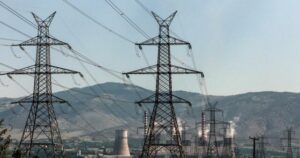Next week the regulation on the extraordinary measures for the electricity market, which will include the level of taxation of gas-fired electricity producers, is expected to be submitted to parliament.
As Environment and Energy Minister Theo Skylakakis clarified yesterday on the sidelines of the signing of DEPA Emporia’s loan agreement with the EIB, the legislative regulation will specify the exact amount of the extraordinary tax for electricity producers that will be directed to the Energy Transition Fund to subsidise Greek households. The final amount of the financial support, however, will not be known before August 2, since by then the green tariffs will have been announced and the subsidy will come and will be added on top of them so that consumers will not be charged with costs above 15 to 16 cents per kilowatt/hour.
Without the subsidies and with the boost to wholesale prices due to the anomaly caused by cross-border trade and increased demand, prices are projected to exceed 20 cents.
In June, the average electricity tariff was 16.3 cents which, with the big 31% discount offered by the PPC, brought the special tariff down to 13.5 cents which was the cheapest in the market. The role of the company will be decisive in the coming month, since the amount of the subsidy will be determined practically by the offer of its tariff. The Ministry of Energy is putting pressure on the vertically integrated market players (those who have energy supply and production together) to absorb part of the forthcoming increases so that the subsidy given will be lower. It understands, however, that because of the household support, suppliers will give higher tariffs than they would have offered without it. Based on the framework that has been announced, the subsidy will be given to green and yellow tariffs with consumption up to 500 kilowatt/hour.
Ask me anything
Explore related questions





